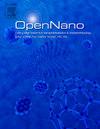Enhancing in Vitro anti-metastatic efficacy and deep penetration into tumor spheroid of docetaxel-loaded liposomes via size optimization for prostate cancer treatment
Q2 Pharmacology, Toxicology and Pharmaceutics
引用次数: 0
Abstract
Castration-resistant prostate cancer (CRPC) presents a formidable challenge due to its aggressiveness and limited treatment options. Loading the drug docetaxel (DTX) into liposomes is a potential alternative approach to improve its efficacy. Several studies have reported that size optimization can improve drug efficacy in other cancer models. Therefore, this study explored the potential of size-optimization of docetaxel-loaded liposomes (LDTX) to improve in vitro efficacy against CRPC. The impacts of LDTX size (<100 nm and 100–200 nm) on cellular uptake, cytotoxicity in both monolayer and three-dimensional (3D) tumor spheroid models, and anti-metastatic effects were investigated. The results showed significant cellular internalization improvement with smaller LDTX, leading to better cytotoxicity in a monolayer cell culture than with larger LDTX. Moreover, smaller liposomes enabled deep penetration into the tumor spheroid, mimicking the tumor microenvironment and effectively eradicating cancer cells inside the spheroid. Interestingly, smaller liposomes also enhanced the anti-metastatic phenotype by inhibiting cancer cell invasion. The findings demonstrate that liposomes size is crucial in enhancing the efficacy of anti-cancer drugs. Therefore, size optimization is essential for developing highly effective formulations, requiring thorough investigation to identify the optimal liposomes size for specific applications.

通过优化多西他赛脂质体在前列腺癌治疗中的大小,提高其体外抗转移效果及对肿瘤球体的深度渗透
去势抵抗性前列腺癌(CRPC)由于其侵袭性和有限的治疗选择而面临着巨大的挑战。将药物多西紫杉醇(DTX)装载到脂质体中是提高其疗效的潜在替代方法。有几项研究报道,尺寸优化可以提高其他癌症模型的药物疗效。因此,本研究探讨了多西他赛负载脂质体(LDTX)的尺寸优化潜力,以提高体外抗CRPC的疗效。研究了LDTX尺寸(100 nm和100 - 200 nm)对细胞摄取、单层和三维(3D)肿瘤球体模型的细胞毒性以及抗转移作用的影响。结果显示,较小的LDTX显著改善了细胞内化,导致单层细胞培养的细胞毒性优于较大的LDTX。此外,更小的脂质体能够深入肿瘤球体,模拟肿瘤微环境,有效地根除球体内的癌细胞。有趣的是,较小的脂质体也通过抑制癌细胞侵袭增强了抗转移表型。研究结果表明,脂质体的大小对提高抗癌药物的疗效至关重要。因此,尺寸优化对于开发高效配方至关重要,需要深入研究以确定特定应用的最佳脂质体尺寸。
本文章由计算机程序翻译,如有差异,请以英文原文为准。
求助全文
约1分钟内获得全文
求助全文
来源期刊

OpenNano
Medicine-Pharmacology (medical)
CiteScore
4.10
自引率
0.00%
发文量
63
审稿时长
50 days
期刊介绍:
OpenNano is an internationally peer-reviewed and open access journal publishing high-quality review articles and original research papers on the burgeoning area of nanopharmaceutics and nanosized delivery systems for drugs, genes, and imaging agents. The Journal publishes basic, translational and clinical research as well as methodological papers and aims to bring together chemists, biochemists, cell biologists, material scientists, pharmaceutical scientists, pharmacologists, clinicians and all others working in this exciting and challenging area.
 求助内容:
求助内容: 应助结果提醒方式:
应助结果提醒方式:


